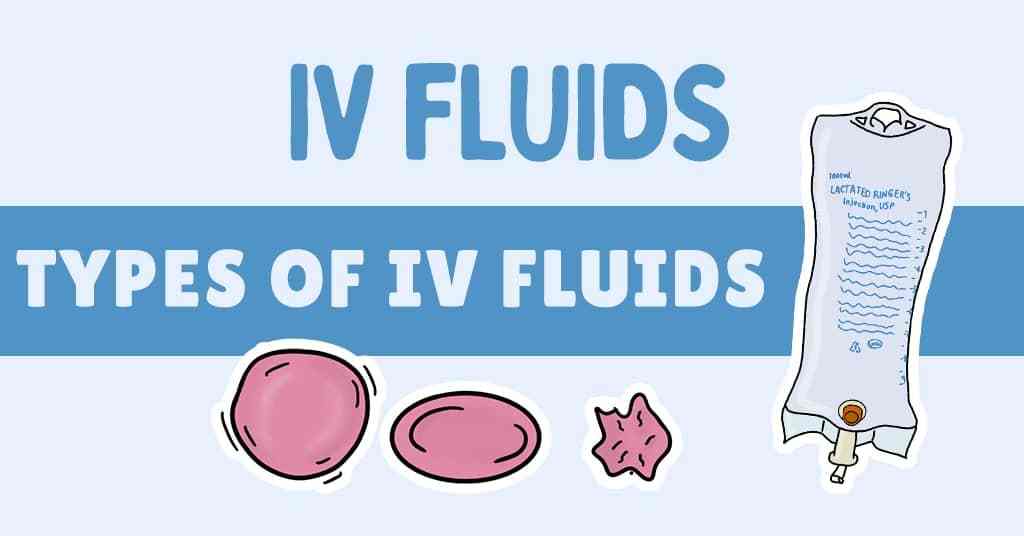Heart failure is a complex clinical syndrome that results from any structural or functional impairment of ventricular filling or ejection of blood. It affects millions of people worldwide and poses a significant burden on healthcare systems. One of the critical components in the management of heart failure is the use of intravenous (IV) fluids, which can be a double-edged sword. While they are essential for maintaining hemodynamic stability and perfusion, inappropriate use can exacerbate heart failure symptoms due to fluid overload. Therefore, understanding the best IV fluid for heart failure is crucial for optimizing patient outcomes.
Types of Intravenous Fluids
Intravenous fluids are broadly classified into crystalloids and colloids.
Crystalloids are solutions of minerals (salts) or other water-soluble molecules. They are further divided into isotonic, hypotonic, and hypertonic solutions based on their osmolarity. Colloids, on the other hand, contain larger molecules, such as proteins or starches, that stay in the vascular space longer.
SEE ALSO: Can Steroids Cause Arrhythmia?
1. Crystalloids
Isotonic Crystalloids: These solutions have an osmolarity similar to that of plasma. Common examples include:
- Normal Saline (0.9% NaCl)
- Lactated Ringer’s (LR)
- Plasma-Lyte
Hypotonic Crystalloids: These have lower osmolarity than plasma and include solutions like:
- 0.45% NaCl
- 5% Dextrose in Water (D5W)
Hypertonic Crystalloids: These solutions have higher osmolarity than plasma and include:
- 3% NaCl
- 7.5% NaCl
2. Colloids
Albumin: A natural protein that is often used in fluid resuscitation.
Hydroxyethyl Starch (HES): A synthetic colloid used for volume expansion.
Dextran: Another synthetic colloid used less frequently due to side effects.
Selecting The Best IV Fluid for Heart Failure
The selection of the best IV fluid for heart failure involves careful consideration of the patient’s hemodynamic status, underlying comorbidities, and specific clinical scenarios. Here’s a detailed analysis of various IV fluids and their appropriateness in heart failure management.
1. Isotonic Crystalloids
Normal Saline (0.9% NaCl)
Normal saline is commonly used for fluid resuscitation. It has an osmolarity similar to plasma and can quickly expand the extracellular fluid volume. However, in heart failure patients, excessive use of normal saline can lead to sodium and fluid overload, exacerbating congestion and worsening heart failure symptoms. It should be used cautiously and typically in limited volumes.
Lactated Ringer’s (LR)
Lactated Ringer’s solution contains electrolytes in concentrations similar to plasma and includes lactate, which is metabolized to bicarbonate, potentially helping to correct metabolic acidosis. LR is often preferred over normal saline because it is less likely to cause hyperchloremic metabolic acidosis. However, like normal saline, it can contribute to fluid overload and should be used judiciously in heart failure patients.
Plasma-Lyte
Plasma-Lyte is an isotonic solution with an electrolyte composition closer to human plasma. It includes acetate and gluconate as buffers, which are metabolized to bicarbonate. Plasma-Lyte is considered more physiologically balanced than normal saline and LR, making it a better option for patients with heart failure, especially when large volumes of fluid are needed.
2. Colloids
Albumin
Albumin is a natural colloid that helps maintain oncotic pressure and can expand the intravascular volume effectively. In heart failure, albumin can be beneficial in patients with hypoalbuminemia or those who require a volume expander without excessive fluid. Studies suggest that albumin can improve hemodynamic stability without significantly increasing the risk of fluid overload. However, it is more expensive than crystalloids and should be used based on specific indications.
Hydroxyethyl Starch (HES)
Hydroxyethyl starch solutions are synthetic colloids used for volume expansion. However, their use in heart failure is controversial due to potential side effects, including coagulopathy and renal impairment. Recent guidelines generally recommend against the use of HES in critically ill patients, including those with heart failure, due to these risks.
Dextran
Dextran is another synthetic colloid used for volume expansion. Like HES, it has fallen out of favor due to the risk of anaphylactic reactions and interference with blood clotting. It is generally not recommended for use in heart failure patients.
Evidence-Based Recommendations
The choice of IV fluid in heart failure should be guided by evidence-based practices and tailored to the individual patient’s needs. Here are some key recommendations based on current guidelines and research:
Volume Assessment: Carefully assess the patient’s volume status before initiating IV fluids. Clinical signs, such as jugular venous distention, peripheral edema, and lung auscultation, combined with laboratory tests (e.g., B-type natriuretic peptide levels) and imaging (e.g., echocardiography), can help determine the need for fluid administration.
Judicious Use of Crystalloids: Prefer balanced crystalloids like Plasma-Lyte over normal saline due to the lower risk of inducing hyperchloremic metabolic acidosis and less impact on acid-base balance.
Colloids in Specific Scenarios: Use albumin selectively in patients with hypoalbuminemia or those requiring rapid volume expansion without significant fluid overload. Avoid synthetic colloids like HES and dextran due to their adverse effect profiles.
Monitoring and Adjustment: Continuously monitor the patient’s response to fluid therapy, including urine output, hemodynamic parameters, and signs of fluid overload. Adjust the fluid type and rate accordingly to avoid exacerbating heart failure symptoms.
Diuretic Therapy: In many cases, heart failure patients may require concomitant diuretic therapy to manage fluid overload. Loop diuretics, such as furosemide, can be administered IV to promote diuresis and relieve congestion.
Conclusion
The management of heart failure involves a delicate balance of fluid administration to maintain hemodynamic stability while avoiding fluid overload. The best IV fluid for heart failure is often a balanced crystalloid like Plasma-Lyte, which provides effective volume expansion with a lower risk of metabolic disturbances. Albumin can be beneficial in selected cases, but synthetic colloids like HES and dextran are generally not recommended due to their potential adverse effects.
Ultimately, the choice of IV fluid should be individualized based on the patient’s clinical condition, underlying comorbidities, and response to therapy, with continuous monitoring and adjustment to optimize outcomes.

